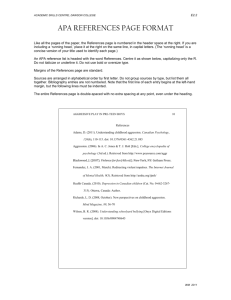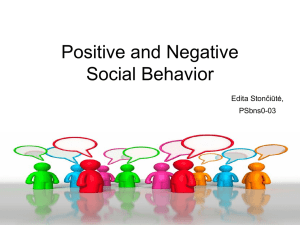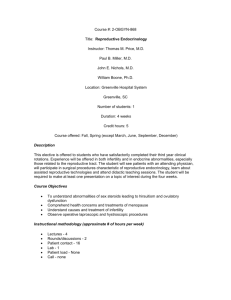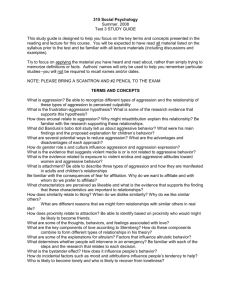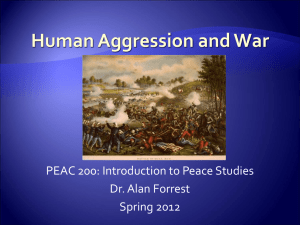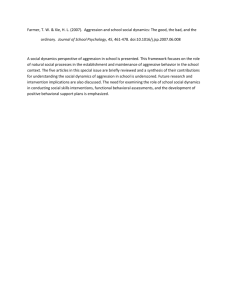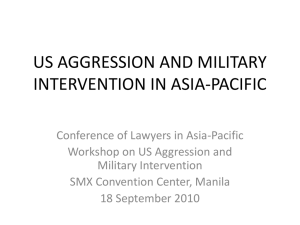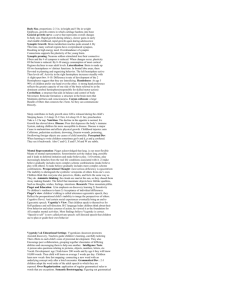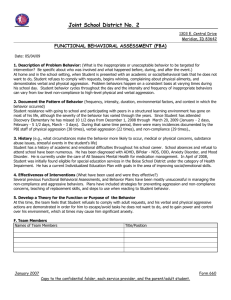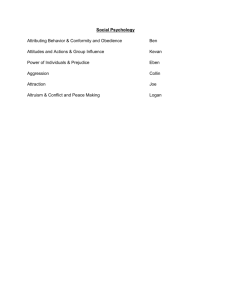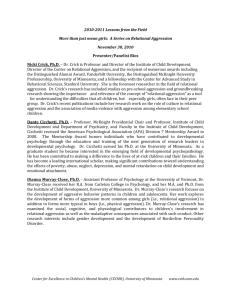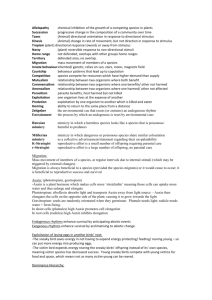29632,"behavioral sink",13,15,"2000-02-14 00:00:00",210,http://www.123helpme.com/view.asp?id=31562,2.4,530000,"2016-02-28 10:00:51"
advertisement
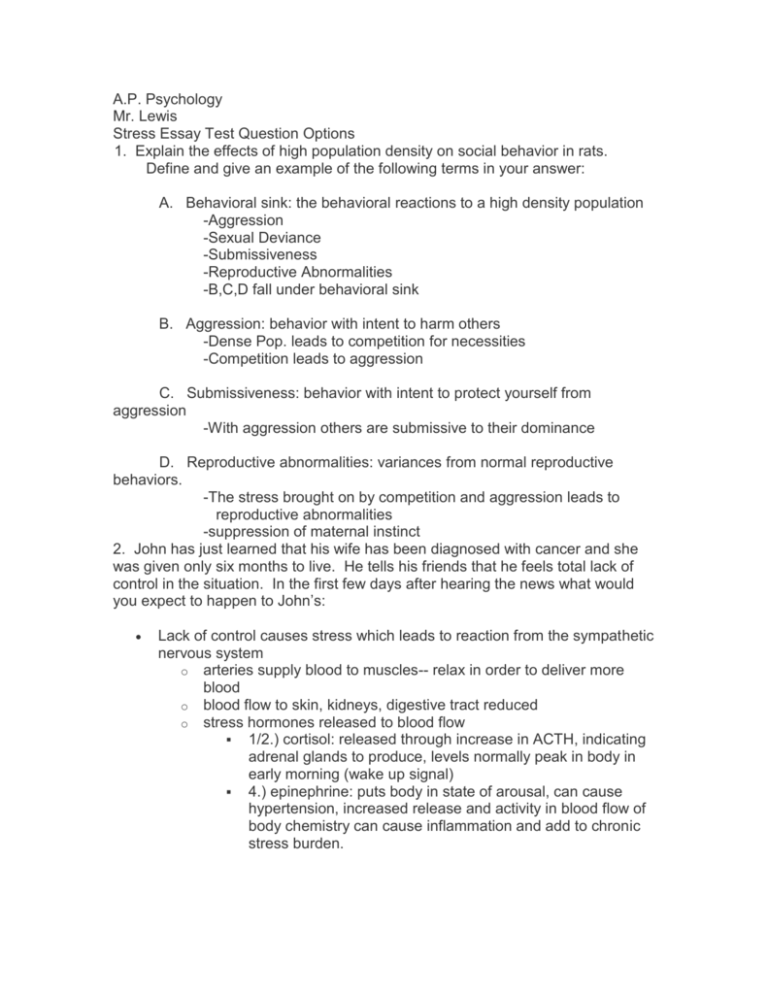
A.P. Psychology Mr. Lewis Stress Essay Test Question Options 1. Explain the effects of high population density on social behavior in rats. Define and give an example of the following terms in your answer: A. Behavioral sink: the behavioral reactions to a high density population -Aggression -Sexual Deviance -Submissiveness -Reproductive Abnormalities -B,C,D fall under behavioral sink B. Aggression: behavior with intent to harm others -Dense Pop. leads to competition for necessities -Competition leads to aggression C. Submissiveness: behavior with intent to protect yourself from aggression -With aggression others are submissive to their dominance D. Reproductive abnormalities: variances from normal reproductive behaviors. -The stress brought on by competition and aggression leads to reproductive abnormalities -suppression of maternal instinct 2. John has just learned that his wife has been diagnosed with cancer and she was given only six months to live. He tells his friends that he feels total lack of control in the situation. In the first few days after hearing the news what would you expect to happen to John’s: Lack of control causes stress which leads to reaction from the sympathetic nervous system o arteries supply blood to muscles-- relax in order to deliver more blood o blood flow to skin, kidneys, digestive tract reduced o stress hormones released to blood flow 1/2.) cortisol: released through increase in ACTH, indicating adrenal glands to produce, levels normally peak in body in early morning (wake up signal) 4.) epinephrine: puts body in state of arousal, can cause hypertension, increased release and activity in blood flow of body chemistry can cause inflammation and add to chronic stress burden. o 4.) both cortisol and epinephrine facilitate movement from bloodstream and storage organs into tissue where they are needed to defend against infection 3.) underreaction of sympathetic nervous system leads to decrease in production of B lymphocytes which protect against antigens by producing antibodies T lymphocytes, which form in the thymus, attack cancer cells, viruses, and foreign substances production decrease--- herpesvirus erupts, cancer cells multiply 3. There is a dramatic increase in the likelihood of a person becoming ill or dying during a brief period following the death of a spouse. Describe three specific biological processes and three psychological processes that may contribute to this effect. Three biological processes 1. General Adaptation Syndrome- According to Selye, people react to stress in three stages: Alarm reaction, resistance, and exhaustion. 2. Stress depresses the immune system, making the body more likely to become ill, due to the inability to fight off illnesses. 3. The sleep-cycle is disrupted, because glucocorticoid levels increase, causing someone to have difficulty sleeping. This is cyclical, and thus causes people to become more stressed, and more likely to develop illness. Three psychological processes 1. This will cause someone to withdraw themselves, a common effect of the loss of a spouse. People with poor social connections are more likely to develop illness. 2. Psychophysiological illnesses- stress causes headaches and hypertension. Hypertension increases the chances of chronic heart disease and heart attacks. 3. Perceived control- people who feel as though they have no control over a situation are more vulnerable to ill health. Since someone has no control over the death of their spouse, they will be more likely to become ill. 4. A classmate argues that “the best way to handle stress is to work harder and meet life’s challenges head-on.” Evaluate both the strengths and the weaknesses of your classmate’s position. Strengths 1. get a lot accomplished, so you have less to worry about 2. high intrinsic motivation 3. If you are in control of the outcome and you accept the responsibility of getting it done, then you have a stress relief when it’s complete. (drive-reduction) Weaknesses 1. over-stress causes health issues (heart disease, decreased immune system function) 2. If arousal is too high, caused by a high-stress level, then accomplishing tasks will be difficult 3. If you spend too much time working to get the challenges finished, you won’t have time to do other stress-relieving activities (social time, relaxation, exercise)
